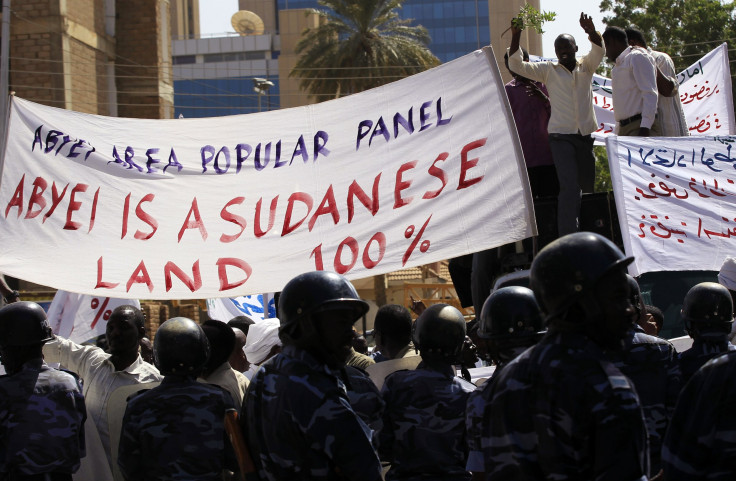Analysis: Fresh Fight Between The Sudans Is About People, Not Oil

Abyei, the oil-rich territory claimed by both Sudan and South Sudan, has rustled up a fresh round of saber-rattling between the estranged East African countries, as the Khartoum regime blames Juba, the capitol of South Sudan, for supporting rebels in the region and threatens to cut off petrol pipelines.
But, with both countries’ crucial oil assets at risk, is this long-standing conflict really about black gold?
“Honestly, I’m really very reluctant to make the oil really the issue of this thing,” Seif Yasin, a spokesman for the Sudanese embassy in Washington, D.C., said. “The oil, sooner or later, is going to be finished in that area. Years down the road, there will be no more oil. But people will be there.”
On Thursday, rebels from the Justice and Equality Movement -- one of Sudan’s biggest opposition groups -- launched an attack on the Diffra oilfield from South Sudan, drawing immediate scorn from the government in Khartoum. Sudan's President Omar al-Bashir ordered a halt to South Sudan’s oil shipments through pipelines in the north.
South Sudan, which won its independence two years ago after a 50-year struggle, denied supporting the rebels. “We cannot do that at a time when we want the oil to flow,” Mawien Makol Arik, a spokesman for South Sudan’s foreign affairs ministry, told Reuters.
So, why would South Sudan risk violating the United Nations-approved Abyei peace accord and sever its main transportation system for oil?
Yasin said representatives in Juba who hail from the region are cultivating ties with the rebels to destabilize, and ultimately take, Abyei for the south.
“This dispute between the north and the south about Abyei stems from some politicians … in the southern government that are from that part of the country,” he said. “So it is in their own interest to have Abyei part of the south, so they’re doing everything possible.”
Already, the brewing conflict between the two countries is drawing international condemnation.
South Africa released a statement on Friday urging the two sides to withdraw troops from the border and “resolve their differences through negotiations under the aegis of the African Union High-Level Implementation Panel” through a special summit panel.
© Copyright IBTimes 2024. All rights reserved.












